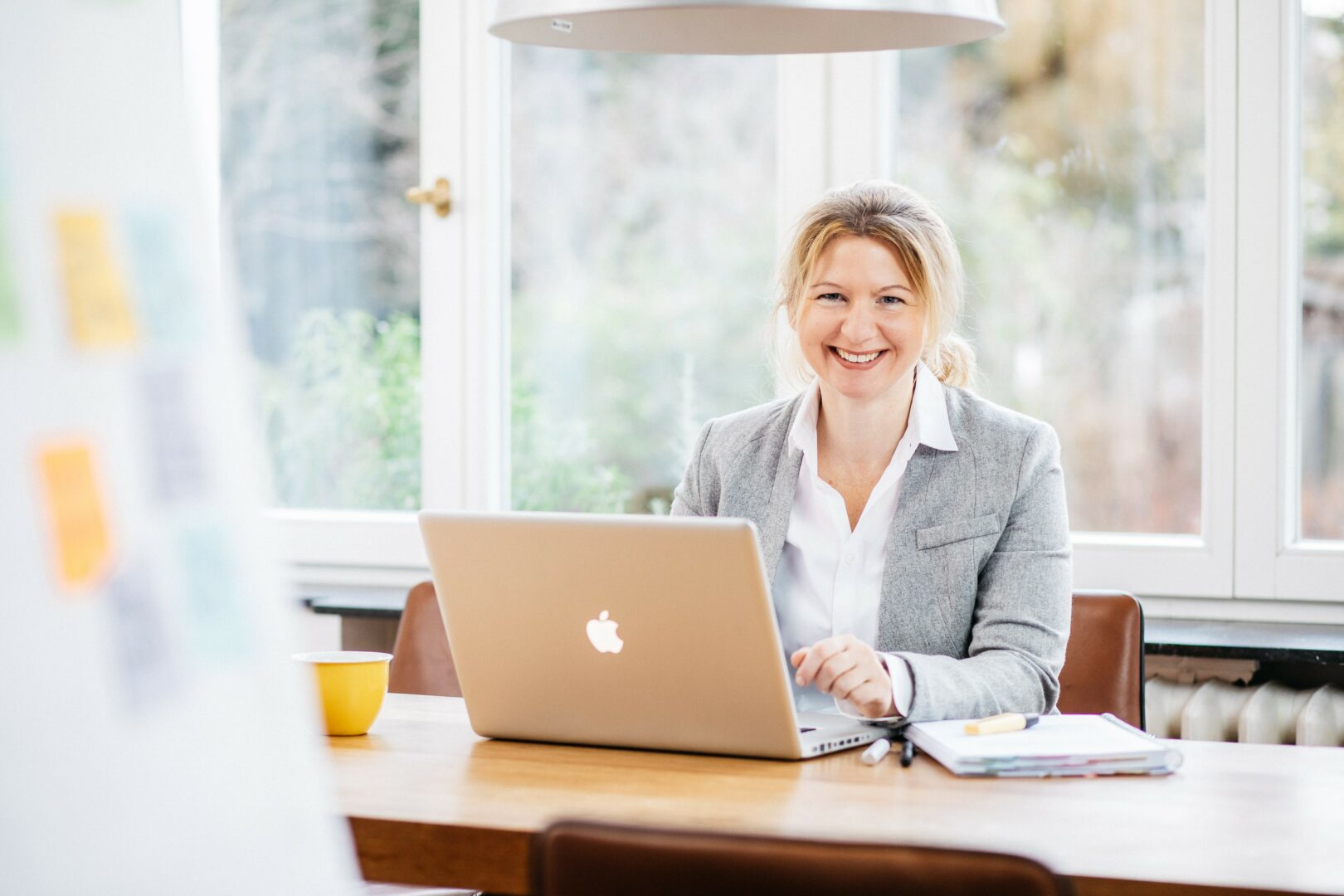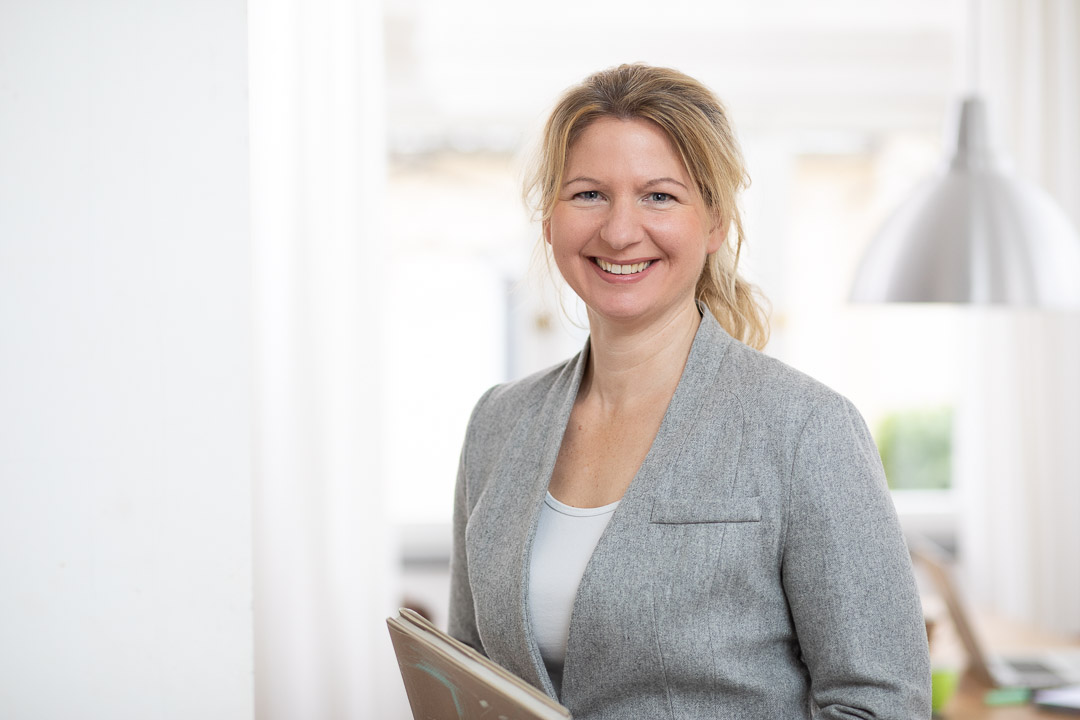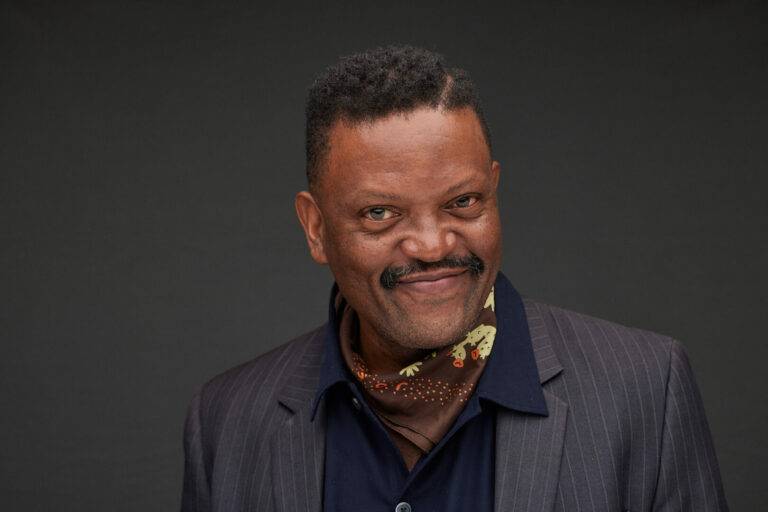We’re excited to introduce you to the always interesting and insightful Karolin Helbig. We hope you’ll enjoy our conversation with Karolin below.
Hi Karolin, really happy you were able to join us today and we’re looking forward to sharing your story and insights with our readers. Let’s start with the heart of it all – purpose. How did you find your purpose?
I’ve never thought of my purpose as something fixed—more like an evolving journey of discovery and refinement. In each phase of my life, I found myself reorienting, reinventing, and deepening my sense of purpose. As a scientist, then a top management consultant at McKinsey, later as a mother of four, and now as an independent leadership consultant, my purpose has been shaped by experience, learning, and self-discovery..
At the start of my current phase, I worked with a specialized purpose coach. That deep exploration was transformational—bringing clarity, alignment, and a renewed commitment to who I am and want to be. We delved into key moments of my life: the times I felt most alive, the impact I had on others, and the words people used to describe me at my best. This process led me to articulate a guiding purpose statement—a north star I return to whenever I feel lost in distractions. It helps me stay connected to what truly matters, how I want to show up, and the impact I wish to have.
Right now, I feel profoundly grateful to be in the sweet spot where my abilities, values, and passions align—supporting my clients in reaching new levels of impact and joy, while also being present for my family and friends. And in both, I live by the same core values: empathy, curiosity, appreciation, and creativity,.
Purpose is never “found” once and for all—it evolves. And I’m excited to see where the next phase of my journey will take me.

Thanks for sharing that. So, before we get any further into our conversation, can you tell our readers a bit about yourself and what you’re working on?
As a leadership consultant, my mission is to empower high-performing teams to achieve greater impact and joy in their work. What truly excites me is helping people unlock their full potential. It’s deeply fulfilling to witness those “aha” moments—when someone discovers a new way forward, when a team suddenly clicks, or when a leader finds the confidence to navigate uncertainty with clarity and purpose.
Looking back, my journey might seem linear, but my younger self would have been surprised to see where I am today. I started out as a scientist, earning a PhD in human genetics, then spent years as a top management consultant with McKinsey. Along the way, I became fascinated by the human mind—how we think, connect, lead, and create. I also realized that what truly makes leaders successful isn’t just intellectual intelligence but emotional intelligence. This realization led me to dive deep into mindfulness, emotional intelligence, and psychological safety, training as a Search Inside Yourself (SIY) teacher and becoming certified in The Fearless Organization and Dare to Lead methodologies. Today, I bring all of this together in my work, blending analytical sharpness with empathy, structure with intuition, and science with real-world practicality.
Collaboration is at the heart of everything I do. I’m incredibly fortunate to work alongside amazing colleagues, including my partners at Leadership Expeditions, Wiebke Stegh and Isabel von Korff. Together, we design transformative leadership journeys that help teams thrive. I’ve also had the absolute joy of co-authoring The Psychological Safety Playbook with Minette Norman—an incredibly rich partnership that led us to create a certification program for facilitators. Now, we’re writing our second book, a guide for changemakers who want to accelerate psychological safety in their organizations. This time, we’re exploring the deeper nuances and real-world complexities leaders face—how to spark change within teams, how to respond to skeptics, and how to make psychological safety a lived reality rather than just a concept.
Beyond my work, I’m a passionate lifelong learner, constantly reading about neuroplasticity, mindset, leadership, and creativity. And as a mother of four, I get plenty of hands-on practice in patience, adaptability, and navigating complexity!
There is so much advice out there about all the different skills and qualities folks need to develop in order to succeed in today’s highly competitive environment and often it can feel overwhelming. So, if we had to break it down to just the three that matter most, which three skills or qualities would you focus on?
Looking back, three things have made the biggest difference in my journey:
1) Listen to and trust your inner voice.
It’s easy to get caught up in external expectations—the louder “shoulds” of life. But the real answers come from within. For me, journaling has been a transformative tool—helping me process worries, dreams, and decisions. Find a way to tune into your inner voice, whether it’s writing, walking, or quiet reflection. Shift from asking, “How does this look?” to “How does this feel?” And don’t be afraid to make choices that might seem unconventional. In the end, you are the only person who needs to be at peace with the path you’ve chosen.
2) It’s all phases.
There were moments as a young mother when I thought I was losing my last brain cell at the playground, wondering if my professional life had stalled forever. What I wish I had known then: it’s just a phase. The Masai are said to struggle in jail because they don’t have a strong concept of time passing—and sometimes, we trap ourselves in that same mindset. Every stage of life brings something different. Be fully present in the phase you’re in, experience it completely, feel all the feelings. But also trust that things will evolve, that new opportunities will come. They always do.
3) Your weaknesses are often your strengths.
At McKinsey, I was told I needed to be more assertive—less asking, more telling. But the reality? My ability to listen, to sense what truly mattered, was what made me effective. Clients valued my empathy, and we achieved great results because of it. For a long time, I tried to “fix” what I was told were weaknesses. Now, I see that real impact comes from leaning fully into your strengths. If you focus on correcting weaknesses, you might become average. If you embrace your strengths, you become exceptional. My heart was always strong—some saw it as softness, but today, I let it be open, caring, and free. And that’s exactly what makes me most effective in my work.
As we end our chat, is there a book you can leave people with that’s been meaningful to you and your development?
One book that has profoundly shaped my thinking is Mindset by Carol Dweck. The core idea—that our abilities, intelligence, and even our personality are not fixed but can grow and evolve—completely reframes how we approach challenges, setbacks, and success.
A few key insights that stuck with me:
“Not yet” is a powerful mindset shift. Instead of seeing failure as a dead end, Dweck encourages us to see it as “not yet”—a stepping stone to learning and growth. This has changed how I think about setbacks in both my work and personal life.
Effort and persistence matter more than talent. We tend to admire natural ability, but real success comes from showing up, learning, and adapting over time. This applies to leadership, parenting, and personal development alike.
Praise the process, not just the outcome. Whether working with teams or raising children, focusing on effort, strategy, and resilience (instead of just results) fosters long-term motivation and confidence.
I come back to these lessons often, especially when facing something that feels difficult or uncertain. It’s a reminder that growth is always possible—with the right mindset.
Contact Info:
- Website: https://karolinhelbig.com
- Linkedin: https://www.linkedin.com/in/karolinhelbig/
- Other: https://leadership-expeditions.com
https://thepsychologicalsafetyplaybook.com
so if you or someone you know deserves recognition please let us know here.




